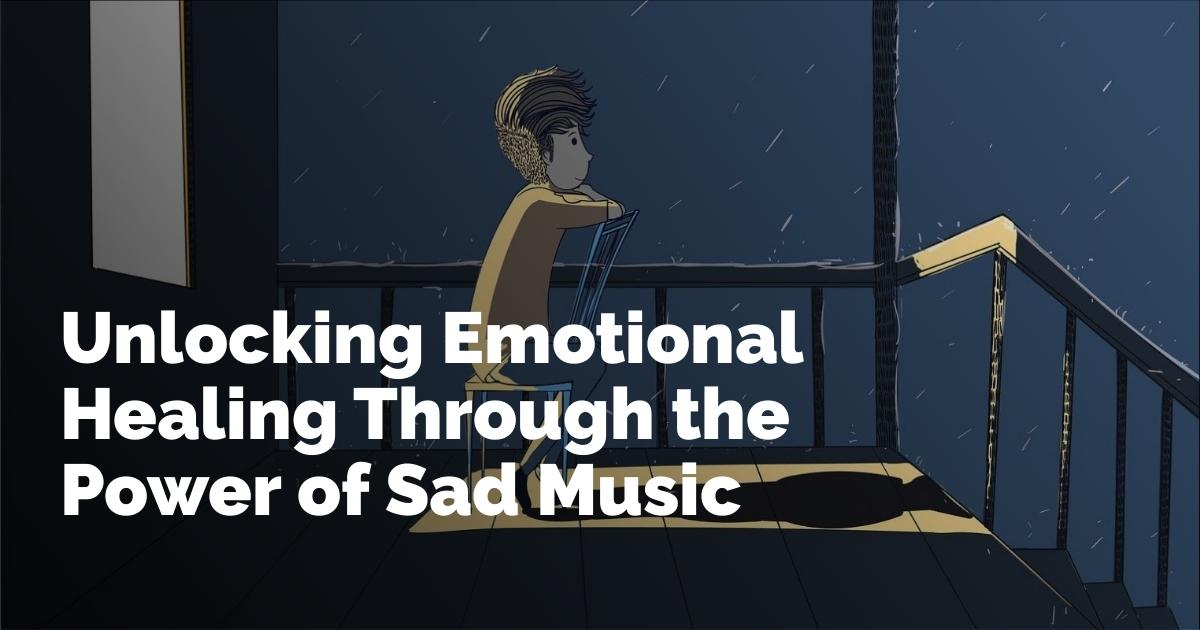The Healing Power of Sad Music
Sadness is almost universally perceived as a negative emotion. Yet, many people find a unique pleasure in engaging with sad music. It seems contradictory—why would anyone seek out something that evokes melancholy? The exploration of this phenomenon reveals a fascinating interplay of emotional expression, mental processes, and personal experiences. Below, we delve into the various elements that contribute to the enjoyment and psychological benefits of sad music.
Emotional Expressions in Voice and Music
Music has a profound ability to mirror the emotional tones of the human voice. When we are in a melancholic state, our voices naturally become slower, softer, lower in pitch, and darker in timbre—a quality vividly captured in Samuel Barber’s renowned Adagio for Strings, often hailed as one of the saddest musical compositions. This emulation allows music to express emotions authentically, creating a soundscape that resonates deeply with listeners. We are drawn to how music, like the human voice, conveys nuanced emotional narratives.
Cathartic Emotional Release
Music serves as an emotional outlet, providing a cathartic release for pent-up feelings such as anger and sadness. Unlike real-life scenarios that may provoke these emotions, sad music offers a safe space where listeners disconnect from genuine grief or threat. This detachment lets us experience the emotions more purely, akin to watching a sad movie. The music-induced sadness is 'safe'; it allows us to feel deeply without the complicating realities of guilt or responsibility that real-world situations might entail.
The Hormonal Benefits of Sad Music
Listening to sad music can trigger the release of prolactin, a hormone associated with soothing and calming effects. Prolactin is the same hormone that is released when mothers are nursing their infants, promoting a sense of tranquility. This biological response can counteract mental distress and foster a sense of peace, making sad music a tool for emotional soothing and comfort, abating the ache of grief and sorrow.
Empathy's Role in Musical Enjoyment
Empathy significantly enhances the enjoyment of sad music. This capacity to understand or connect with the experiences of others means that individuals with higher empathy are more deeply moved by tragic or somber art forms. These listeners exhibit a heightened ability to envision the experience of a fictional character or situation reflected in the music. This empathetic engagement enriches the listening experience, fostering a profound emotional connection.
Nostalgia and Reflective Recollections
Sad music is a potent catalyst for nostalgia, evoking memories of times past. These reflective journeys can enhance our mood by reconnecting us with meaningful moments in our lives, such as pivotal events in high school or college. The process of revisiting these memories through music provides a blend of sweet recollection and a tinge of sadness, as we mourn the passage of time and the loss of those experiences.
Regulating Emotions Through Music
Sad music can play a pivotal role in mood regulation, acting as an imaginary companion that provides comfort and empathy, especially following personal losses or emotionally turbulent periods. It acts as a virtual presence that echoes and validates our feelings, enabling us to navigate through difficult emotions. Compositions, like Schubert’s final three piano sonatas, imbue us with a sense of shared loneliness and understanding, giving voice to parts of ourselves that might otherwise remain silent.
The Aesthetic Pleasure of Sadness
Ultimately, sad music empowers listeners to transcend their immediate distress and appreciate the innate beauty of the compositions. Whether through lyrical resonance or musical expression, it articulates emotions and experiences that might be difficult to convey otherwise. This aesthetic framing allows us to experience sadness not just as a negative emotion, but as a profound, enriching element of the human experience.
In essence, sad music transforms the complex emotion of sadness into an experience that can offer pleasure, reflection, and emotional healing. Through its multifaceted impact on our emotions and mental states, sad music stands as a testament to the intricate relationship between art, emotion, and the human condition.
출처 : Original Source

